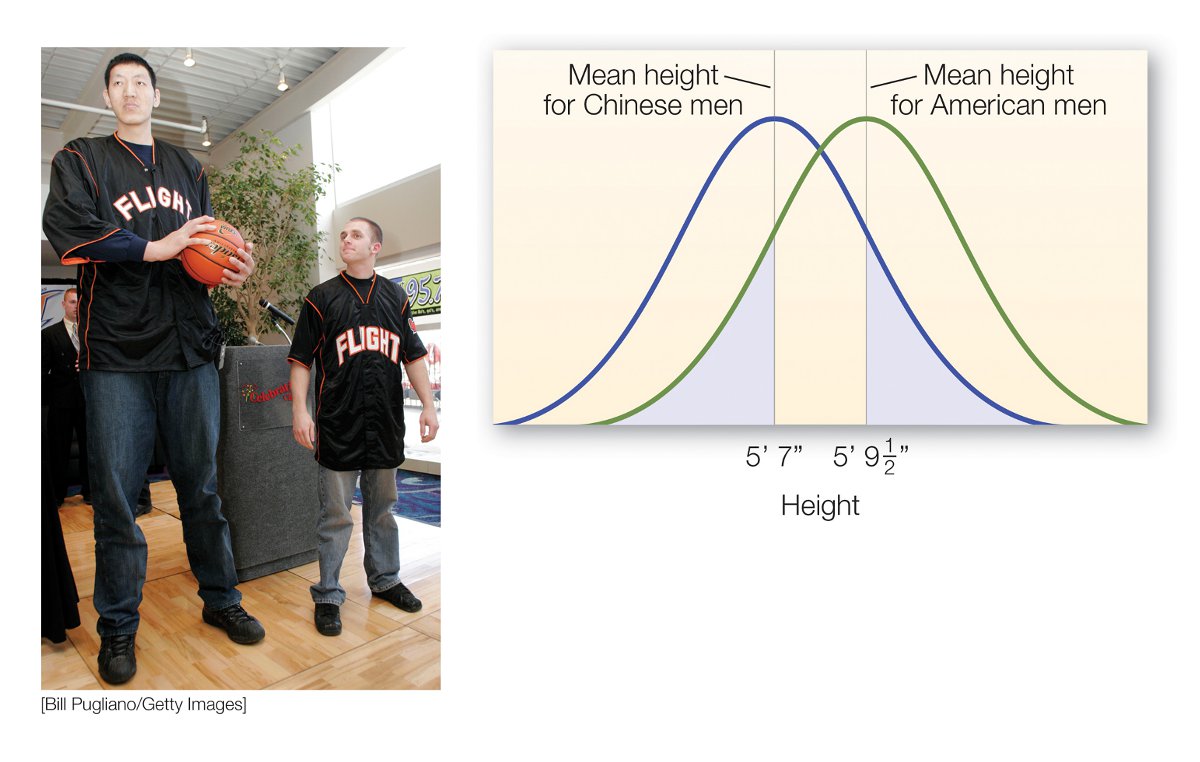10.1 The Nature of Prejudice: Pervasiveness and Perspective
Prejudice probably is the most heavily studied topic in social psychology. The historical pervasiveness and destructiveness of prejudice is probably why. Virtually every person currently living on this planet has been profoundly affected by prejudice. If you are Arab American, African American, Hispanic American, Jewish American, or Native American, this is likely obvious to you. But it is equally true regardless of your ethnic background. Every ethnic and cultural group has been powerfully influenced by historical intergroup conflicts and oppression. The French have been targets of prejudice by Americans, have been involved historically in conflicts with England (including a 100-
In everyday language, the word prejudice has a number of meanings, all based on the notion of judging something or someone prematurely from insufficient evidence. In social psychology, prejudice is defined as a negative attitude toward an individual based solely on that person’s presumed membership in a particular group. Thus the person is disliked not because of her personal attributes or actions but simply because she is perceived to be in some supposedly undesirable category: physically disabled, Italian, African American, Hindu, female, lesbian, fat, old, teenager, communist.
Prejudice
A negative attitude toward an individual solely on the basis of that person’s presumed membership in a particular group.
An interesting aspect of prejudice is that, on the one hand, many if not most people seem to be prejudiced against some group. (Right now, you might be feeling some prejudice against prejudiced people!) and they usually feel that their particular prejudice is justified. On the other hand, social psychologists generally assume that prejudice against a person based simply on her or his membership in a group is never justified. This assumption is based on three characteristics of prejudice.
351
First, prejudice involves judging an individual negatively independent of the person’s actual attributes or actions. Social psychologists follow the hope famously articulated by Dr. Martin Luther King, Jr. (1992): “I have a dream that my four little children will one day live in a nation where they will not be judged by the color of their skin but by the content of their character.” If someone harms you or someone you care about, you are justified in disliking that person. If a person simply practices a religion different from your own, has a different skin tone, or comes from a different country, you are not justified in disliking that person.
Think ABOUT

Second, any large category of people will include tremendous variability in virtually every possible attribute by which one might judge another person positively or negatively (Allport, 1954). There may be a group mean (what the average member of a group is like), but there also is always a normal distribution that captures the range along which most people vary from that mean. Think of members of your own extended family—

|
FIGURE 10.1a Human Variability Although Americans on average are taller than Chinese people, there is great variability in the height of individuals in both groups, leading to many exceptions. |
FIGURE 10.1b Overlapping Normal Distributions of Two Groups With Different Mean Heights The normal distribution of Chinese and American males’ heights, based on the group means, might look something like this. The shaded areas represent cases in which we would be wrong if we simply assumed that American males are taller than the average Chinese male or that Chinese males are shorter than the average American male. |
352
The third reason social psychologists judge prejudice negatively is that it has so often led to appalling acts of violence against innocent people—
So that’s the case for prejudice being a bad thing. The people who hold prejudices usually justify them with stereotypes: overgeneralized beliefs about the traits and attributes of members of a particular group: “African Americans are violent,” “Jews are cheap,” “Latinos are lazy,” and so forth. Not all stereotypic traits attributed to a group are negative, but overall, stereotypes of outgroups tend to be negative. Later in this chapter, we will consider where these stereotypes come from, how they affect us, and how they are perpetuated. As we will learn, stereotypes can operate both as conscious justifications of prejudices against others and as implicit assumptions that guide how we think about groups and their members. Even when we don’t acknowledge it or want it to happen, stereotypes can still sometimes bias how we think, feel, and behave toward those whom we perceive as different from us in some way.
Stereotypes
Overgeneralized beliefs about the traits and attributes of members of a particular group.
Discrimination
Negative behavior toward an individual solely on the basis of that person’s membership in a particular group.
When people hold prejudices and stereotypes, either consciously or unconsciously, this often leads to discrimination: negative behavior toward an individual solely on the basis of membership in a particular group. Discrimination comes in many forms, ranging from cold behavior at a party to declining someone’s loan application to torture and genocide. Discrimination is often the consequence of the negative attitude (prejudice) and beliefs (stereotypes) a person holds. But as you’ll recall, attitudes don’t always guide behavior. Because of laws, cultural norms, and competing values to be egalitarian, we can be thankful that people’s behavior is not always biased by prejudice and stereotypes.
SECTION review: The Nature of Prejudice: Pervasiveness and Perspective

|
The Nature of Prejudice: Pervasiveness and Perspective |
|
Prejudice is probably the most heavily studied topic in social psychology, likely because of its historical pervasiveness and destructiveness. |
||
|---|---|---|
|
In social psychology, prejudice is defined as a negative attitude toward an individual based solely on that person’s presumed membership in a particular group. |
The people who hold prejudices usually justify them with stereotypes, overgeneralized beliefs about the traits and attributes of members of a particular group. |
Prejudices and stereotypes, held either consciously or unconsciously, often lead to discrimination: negative behavior toward an individual based solely on that person’s presumed membership in a particular group. |